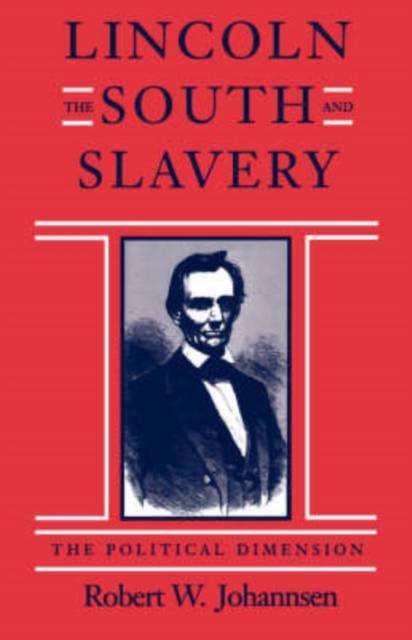
- Retrait gratuit dans votre magasin Club
- 7.000.000 titres dans notre catalogue
- Payer en toute sécurité
- Toujours un magasin près de chez vous
- Retrait gratuit dans votre magasin Club
- 7.000.0000 titres dans notre catalogue
- Payer en toute sécurité
- Toujours un magasin près de chez vous
Description
In 1858, Abraham Lincoln declared his hatred for the institution of slavery, likening his feelings of opposition to those of the abolitionists. Although the fact that Lincoln always disliked slavery is indisputable, the idea that he always opposed it with the zeal and fervor of the abolitionists remains questionable. Only four years prior to his bold declaration, Lincoln admittedly paid little attention to slavery, viewing it as only a minor issue. But in the six years preceding his presidency, his antislavery stance underwent dramatic change. Fueled by political ambition, Lincoln's argument against slavery and his prescription for dealing with it moved from what he initially labeled a middle-ground stance to a more radical position. Robert W. Johannsen's Lincoln, the South, and Slavery traces the political dimension of Lincoln's antislavery stance as it evolved from the passage of the Kansas-Nebraska Act in 1854 to his election as president in 1860.
Whereas previous scholars have largely ignored the political character of Lincoln's antislavery argument, Johannsen sees Lincoln as an astute and ambitious politician whose statements where shaped and directed by the time's ever-changing political exigencies and considerations. Johannsen does not demean the quality of Lincoln's sincerity or downgrade the importance of his moral convictions on the slavery issue, but he does suggest that politics played a larger role than previously acknowledged in the form these convictions took. The four chapters that compose this work connect Lincoln's position with his attitude toward the South and Southerners, from his initial appeal to Southerners at a time when he sought to revitalize the dying Whig party, through his deepening involvement in the Republican party, to his final belief that the South and Southern interests no longer needed to be considered as factors determining his national political success. Johannsen focuses on Lincoln's debut in 1854 as an antislavery speaker, on the development of his stand for the ultimate extinction of slavery, on his espression of the doctrine of the irrepressible conflict, and finally on Lincoln's and the South's perceptions of each other in 1860. As no other work has done, Lincoln, the South, and Slavery shows how Lincoln, in response to the demands of politics, became increasingly anti-slavery and anti-Southern during the 1850s. It will be a welcome contribution to the ongoing debate about the enigma of Lincoln and about his role in the coming of the Civil War.Spécifications
Parties prenantes
- Auteur(s) :
- Editeur:
Contenu
- Nombre de pages :
- 144
- Langue:
- Anglais
- Collection :
Caractéristiques
- EAN:
- 9780807118870
- Date de parution :
- 01-10-93
- Format:
- Livre broché
- Format numérique:
- Trade paperback (VS)
- Dimensions :
- 140 mm x 215 mm
- Poids :
- 185 g

Les avis
Nous publions uniquement les avis qui respectent les conditions requises. Consultez nos conditions pour les avis.






